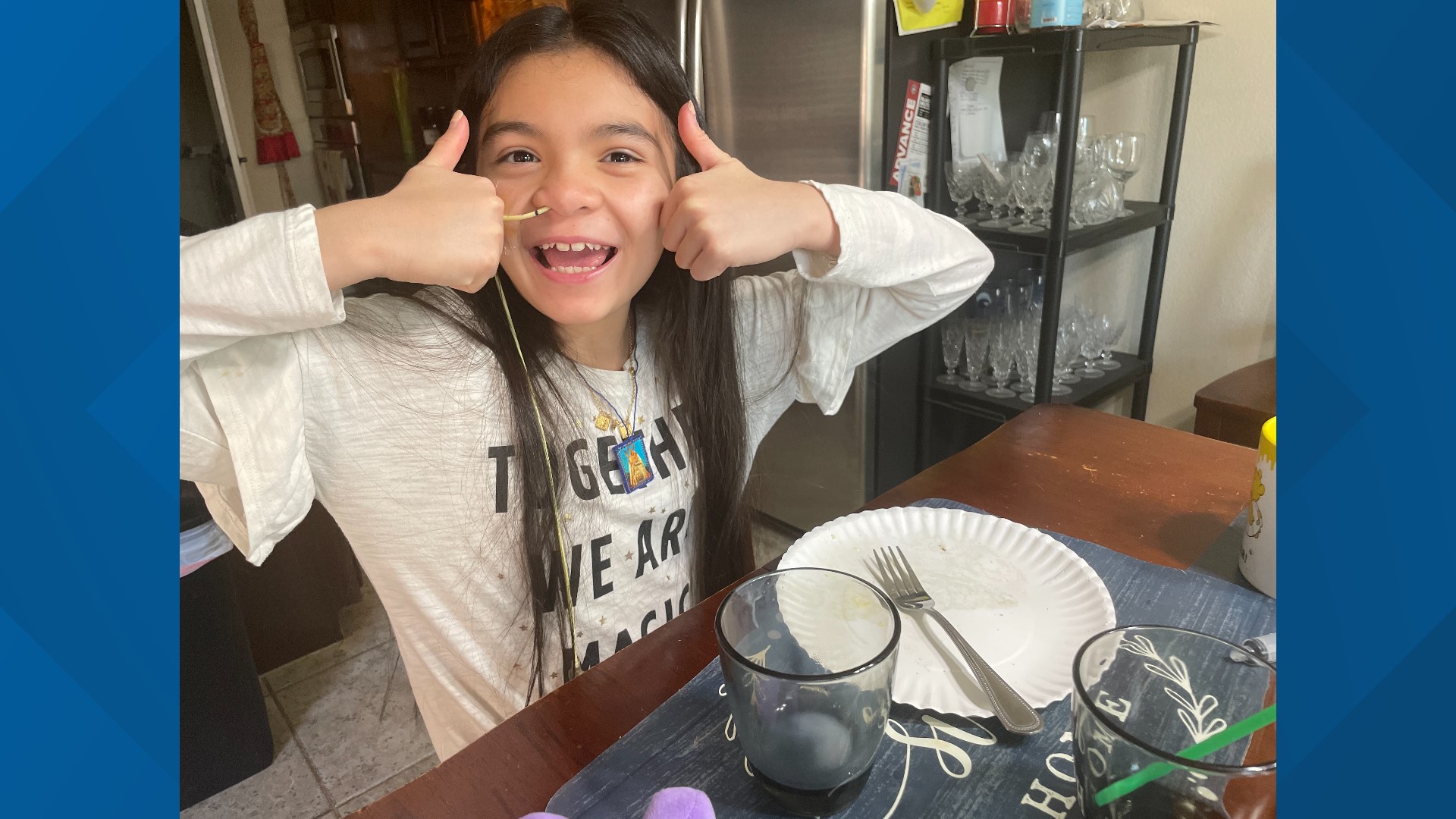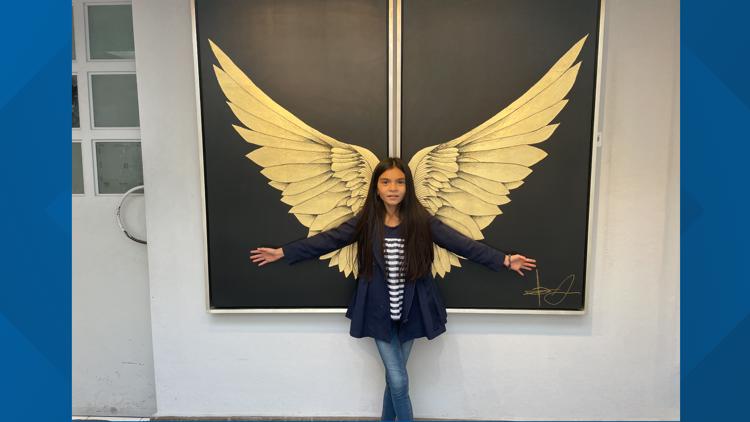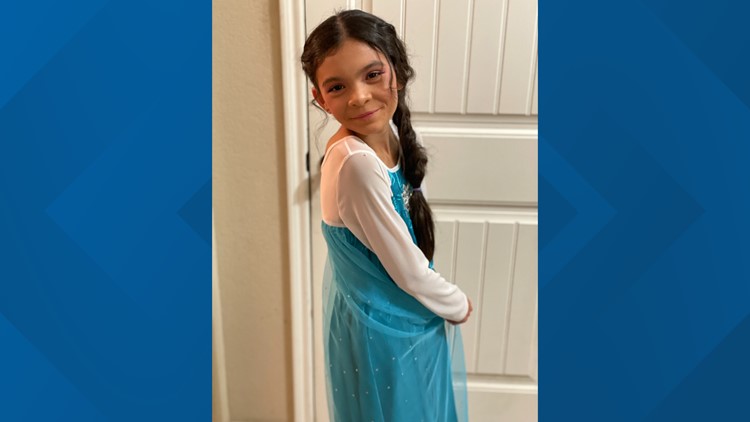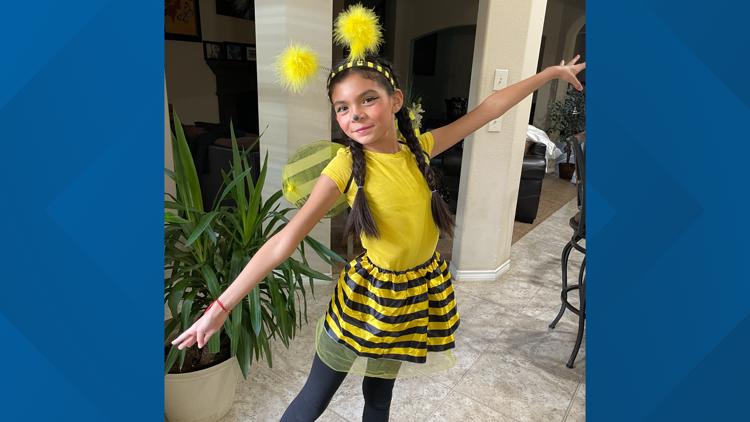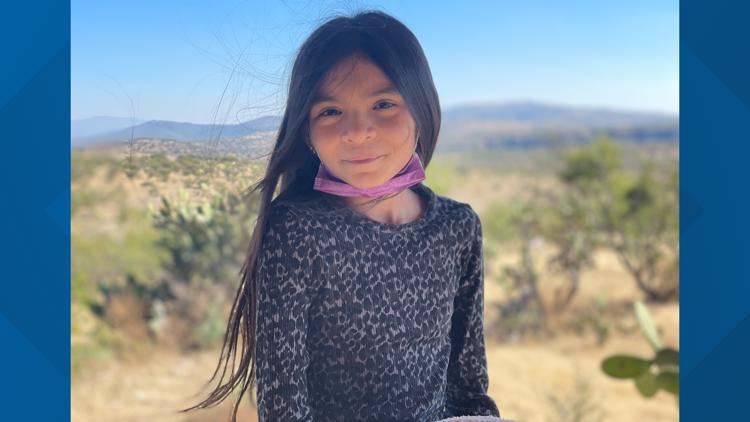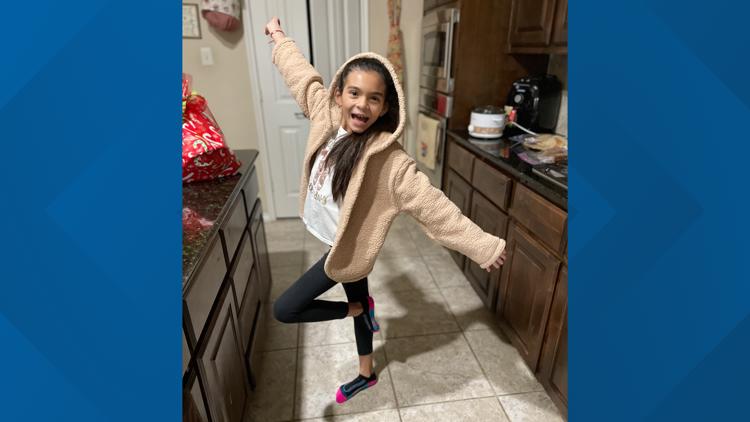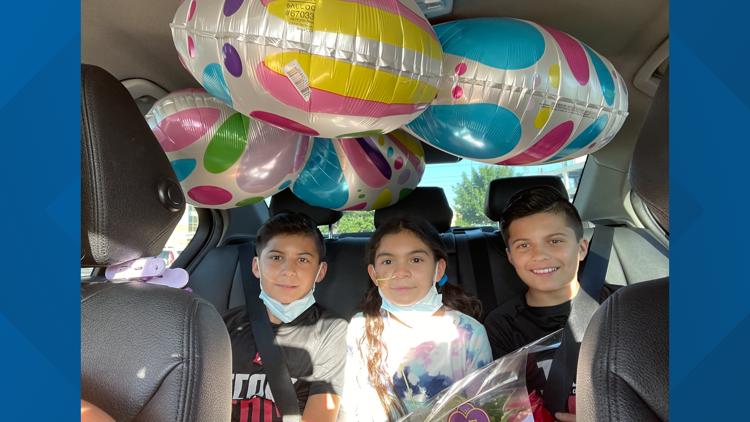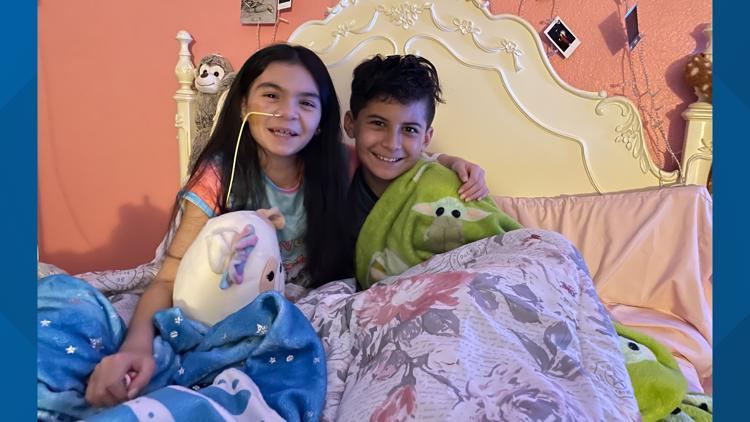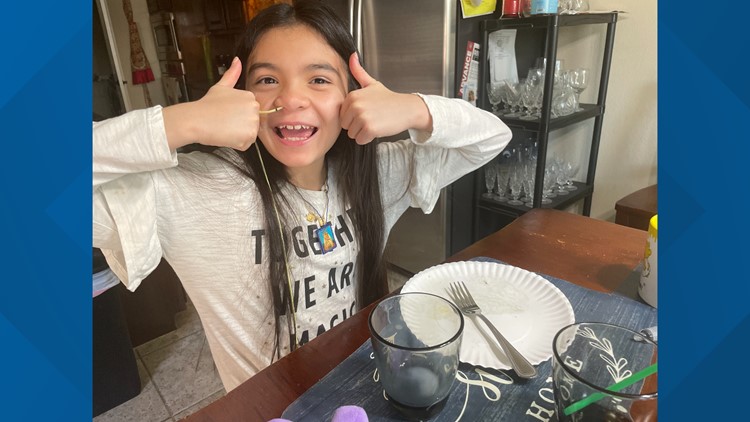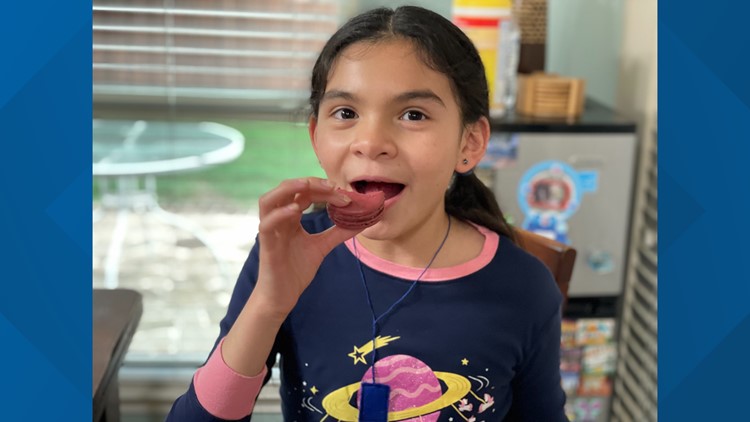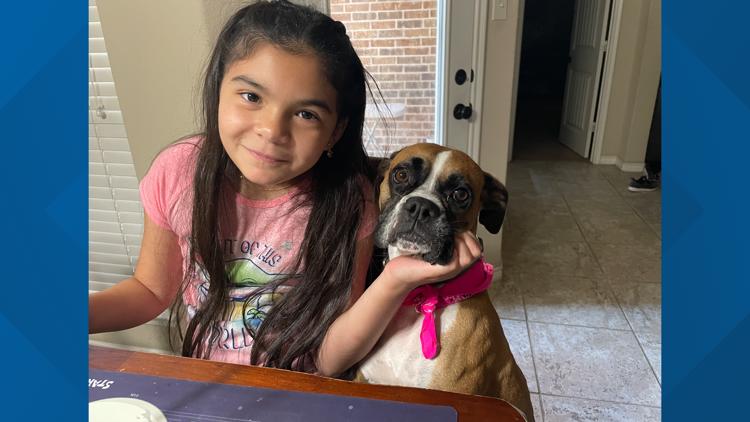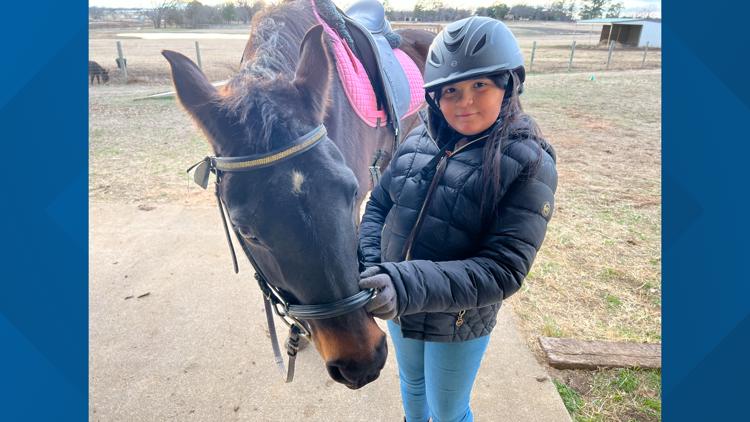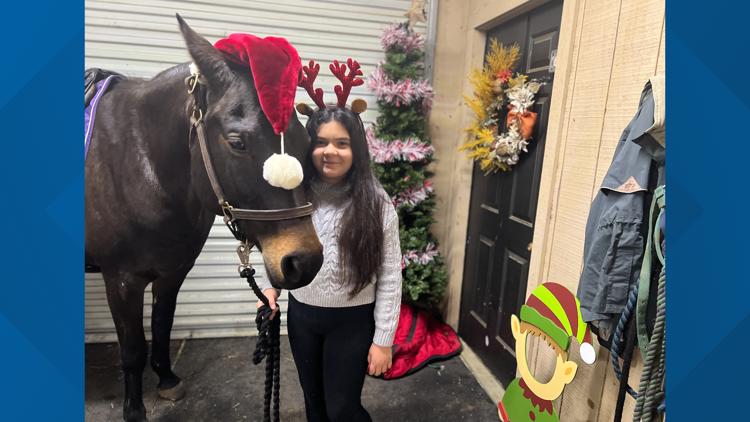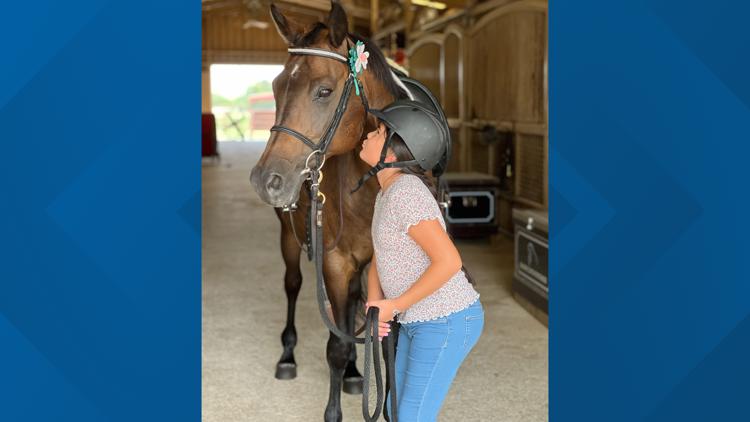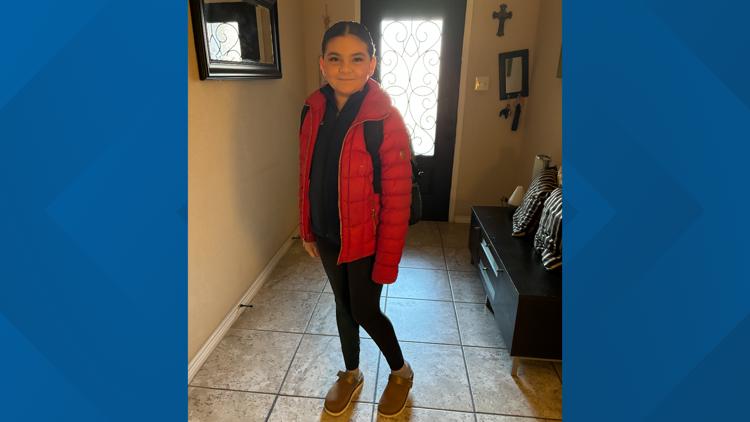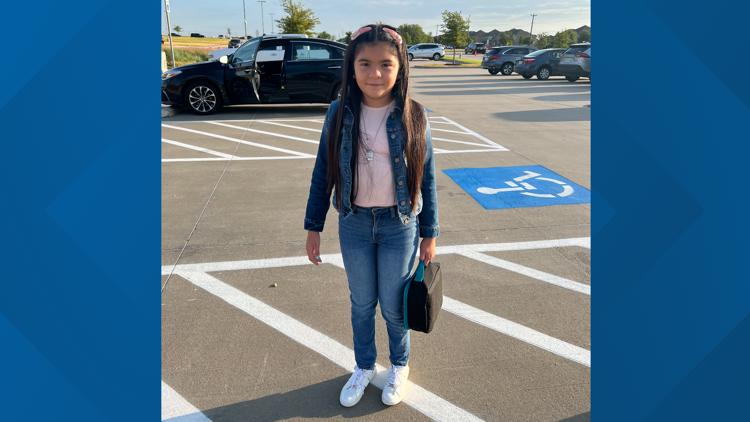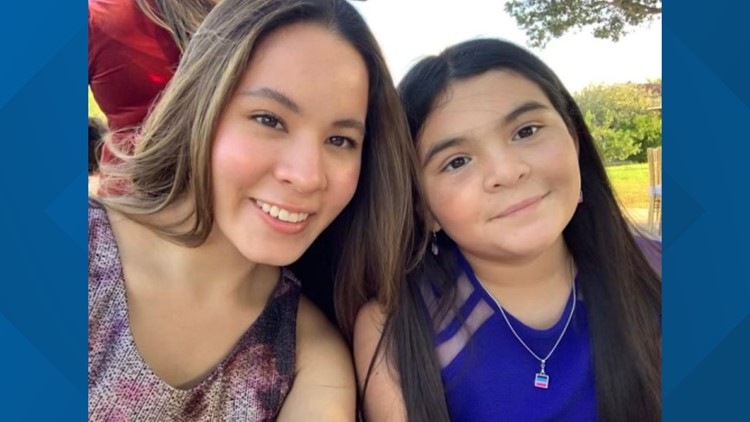PLANO, Texas — She has the soft voice of a young child, but Bella De Leon has faced some very adult challenges.
And when she describes what happened, she’s candid.
“I just wanted to lose some weight,” Bella said. “But then I started to get addicted to it.”
Bella is now 13.
When she was 10, she loved dance classes and looking at Instagram and TikTok.
But now, she knows she didn’t love herself enough.
“There was somebody in dance who was really skinny, and I thought she was really pretty. So, I tried to look like her,” she said.
She was also bombarded by unrealistic images of beauty every time she looked at social media.
She thought she needed to be smaller.
So, she began cutting bread out of her diet.
Then she cut out pasta.
Soon, she wasn’t eating anything.
But her parents didn’t know.
“Sometimes I would hide my food in a napkin,” she now admits. “I’d pretend, telling my parents I was eating. But I actually wasn’t.”
Bella had always been a thin, active girl, said mom Alejandra “Ale” De Leon.
Ale noticed her daughter was getting thinner, but it was gradual.
On a family trip, Ale’s niece told her Bella was looking at weight loss videos on her phone.
But Ale dismissed it.
“I was like, 'She’s young. I don’t think so,'” she remembers.
Before treatment: North Texas girl shares story on eating disorder recovery
When Bella fainted, a trip to the doctor revealed just how much weight she’d lost.
“They told me, 'She’s only 25 pounds. You need to put her in the hospital. If not, she’s going to die,'” Ale remembers. “That’s when my heart collapsed.”
According to the CDC, 11-year-old girls usually weigh between 60 and 120 pounds.
Bella’s weight was more in line with that of a toddler.
“Within the eating disorder program, she was a very typical case,” said Dr. Jasmine Ghannadpour, a board-certified child clinical psychologist at Children’s Medical Center in Plano and assistant professor at UT Southwestern.
Ghannadpour said the age of onset for eating disorders seems to have gotten younger in recent years.
“I think younger kids are just exposed to a lot more unrealistic beauty standards,” she said. “We’re all exposed to it. It’s hard not to be.”
Ghannadpour treated Bella during three months of in-patient hospitalization at Children’s in Plano.
Bella needed a feeding tube for nourishment and intense therapy.
“It’s typically not just an eating disorder in itself,” Ghannadpour explained. “It’s typically maybe related to depression…or maybe it’s anxiety where they have a lot of concerns about how other people are perceiving them and worries about how people are judging them, and they stop eating food as a way to cope with that stress.”
Recovery begins: North Texas girl shares story of battling eating disorder
As Bella began to eat again, she re-gained physical and mental strength.
Now she knows she has anxiety.
And she knows she’s beautiful.
“When I was in the hospital, I began to realize that the body doesn’t matter. It’s what is inside your heart. And I started to believe more in myself,” she said.
She also made a special connection.
From the windows at Children’s in Plano, patients can see a horse in a nearby field.
Bella, an animal lover, realized watching the horse brought her comfort.
“It helped me stay calm and helped me figure out who I actually was,” she said.
Once Bella was discharged, Ale found an equine therapy program.
She’s still taking part.
“My teacher told me they can actually feel your emotions and, whenever you’re angry or anxious, they try to help you,” she said. “Whenever I ride them, I feel like I’m free and can do whatever I want with my life. They’re just like, my best friends.”
Ale says her daughter is happier and more confident than ever, and she now carries herself with a new sense of maturity.
“I’m so proud of her,” Ale said.
Recovery continues: North Texas girl shares story of battling eating disorder
Bella has two brothers, and within their house they all have new rules for cell phones.
Ale says she and her husband don’t allow the kids to use their phones past 8:30 p.m. and she keeps a close eye on anything Bella is consuming.
“I see what she sees,” Ale said. “Now I know there’s a lot on social media that you can’t even imagine. So I keep an eye on her all the time.”
They’ve also gotten rid of all the scales inside their home.
Ghannadpour says it’s important for adults to be conscious of what’s said about weight around kids.
Family meals together every night is an unattainable goal, she knows, but sitting with a child who is struggling with self-esteem or body image while they eat is beneficial.
So is redirecting conversations that trend toward weight. Ghannadpour suggests talking about things like feeling healthy or having energy.
Bella says she now likes food and enjoys eating again.
She knows she’ll likely always have anxiety but has learned healthier ways to cope.
“I’m always going to think about what my doctors told me. To not let your mind overpower you and tell you things that are not true,” she said. “Think positive about yourself.”
NOTE: The following video was uploaded on Jan. 31

